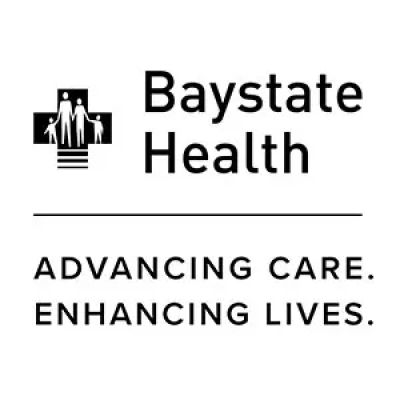- 1-Understanding-Heart-Disease-and-Its-Impact
- 2-Overview-of-the-Ketogenic-Diet
- 3-Positive-Effects-of-Ketogenic-Diet-on-Heart-Health
- 4-Potential-Risks-and-Concerns-with-Keto-for-Heart-Patients
- 5-Real-Life-Case-Studies-on-Keto-and-Heart-Disease
- 6-Expert-Advice-and-Guidance-for-Heart-Health-and-Keto
1. Understanding Heart Disease and Its Impact
Heart disease remains the leading cause of death worldwide, affecting millions of people every year. It encompasses a range of conditions including coronary artery disease, heart attacks, and heart failure. The disease often develops over decades, influenced by factors such as genetics, lifestyle, diet, and overall health. Managing heart disease effectively requires addressing these factors through medication, lifestyle changes, and often diet.
Diet plays a crucial role because what we eat directly affects blood cholesterol levels, blood pressure, inflammation, and body weight—all major contributors to heart health. Traditionally, low-fat diets were recommended for heart patients, but recent research has challenged this paradigm, opening doors for alternative dietary approaches like the ketogenic diet.
2. Overview of the Ketogenic Diet
The ketogenic diet is a high-fat, moderate-protein, and very low-carbohydrate eating plan designed to shift the body’s metabolism into ketosis, a state where fat becomes the primary fuel source instead of glucose. Initially developed to treat epilepsy, the keto diet has gained popularity for weight loss and metabolic health benefits.
By drastically reducing carbs, the ketogenic diet lowers insulin levels and promotes fat burning. Foods commonly consumed include fatty fish, meats, eggs, dairy, nuts, and low-carb vegetables. Despite its benefits, the diet’s high fat intake has sparked debate regarding its safety for individuals with heart disease, prompting detailed examination of its effects on cardiovascular health.
3. Positive Effects of Ketogenic Diet on Heart Health
Several studies have reported encouraging effects of the ketogenic diet on cardiovascular risk factors. For instance, keto has been shown to improve HDL cholesterol (“good” cholesterol) and reduce triglycerides, which are linked to heart disease. Additionally, many people experience weight loss and decreased blood pressure on keto, both crucial factors in reducing heart disease risk.
The ketogenic diet may also reduce markers of inflammation and improve insulin sensitivity, contributing to better heart health. In some clinical trials, participants on keto diets showed favorable changes in LDL particle size, shifting from small, dense particles (which increase risk) to larger, less harmful forms.
These benefits illustrate why some cardiologists and nutrition experts view the ketogenic diet as a potential tool for improving heart health when carefully monitored.
4. Potential Risks and Concerns with Keto for Heart Patients
Despite promising findings, the ketogenic diet may not be suitable for everyone with heart disease. Concerns mainly focus on the high intake of saturated fats, which some studies link to increased LDL cholesterol (“bad” cholesterol) in certain individuals. Elevated LDL can promote plaque buildup in arteries, potentially worsening heart disease.
Another risk is nutrient imbalance—restricting carbohydrates means some heart-healthy foods like whole grains and certain fruits are limited, which can reduce fiber and antioxidant intake. This might negatively affect cardiovascular health if the diet isn’t well-planned.
Patients with pre-existing kidney disease, arrhythmias, or other metabolic conditions should exercise caution. Close medical supervision is essential when adopting a ketogenic diet to monitor cholesterol levels, electrolyte balance, and overall heart function.
5. Real-Life Case Studies on Keto and Heart Disease
Consider the case of Mark, a 52-year-old man diagnosed with early-stage coronary artery disease. After struggling with weight and blood sugar control, he adopted a ketogenic diet under his cardiologist’s guidance. Within six months, Mark lost 30 pounds, improved his HDL levels, and lowered his blood pressure significantly. Regular testing showed stable LDL levels and no adverse cardiovascular events.
Conversely, Linda, a 60-year-old woman with a history of familial hypercholesterolemia, found her LDL cholesterol spiked after starting keto. She adjusted her diet to include more unsaturated fats and eventually transitioned to a Mediterranean-style diet, which better suited her condition.
These contrasting cases highlight the importance of individualized approaches and professional oversight when combining the ketogenic diet with heart disease management.
6. Expert Advice and Guidance for Heart Health and Keto
Experts recommend that anyone with heart disease considering the ketogenic diet should consult their healthcare provider first. Blood work to evaluate cholesterol, triglycerides, and inflammation markers should be done before and during the diet. Working with a registered dietitian familiar with keto can ensure the diet is balanced and tailored to individual needs.
Incorporating heart-healthy fats such as olive oil, avocados, and fatty fish instead of relying heavily on saturated fats is advised. Additionally, supplementing with fiber and micronutrients through low-carb vegetables and nuts supports cardiovascular health.
For those interested in exploring ketogenic diet-friendly products, supplements, or meal plans, HeartCare Hub offers carefully curated recommendations to support heart health while following keto. This trusted resource combines scientific insight with practical solutions to optimize your wellness journey.




















